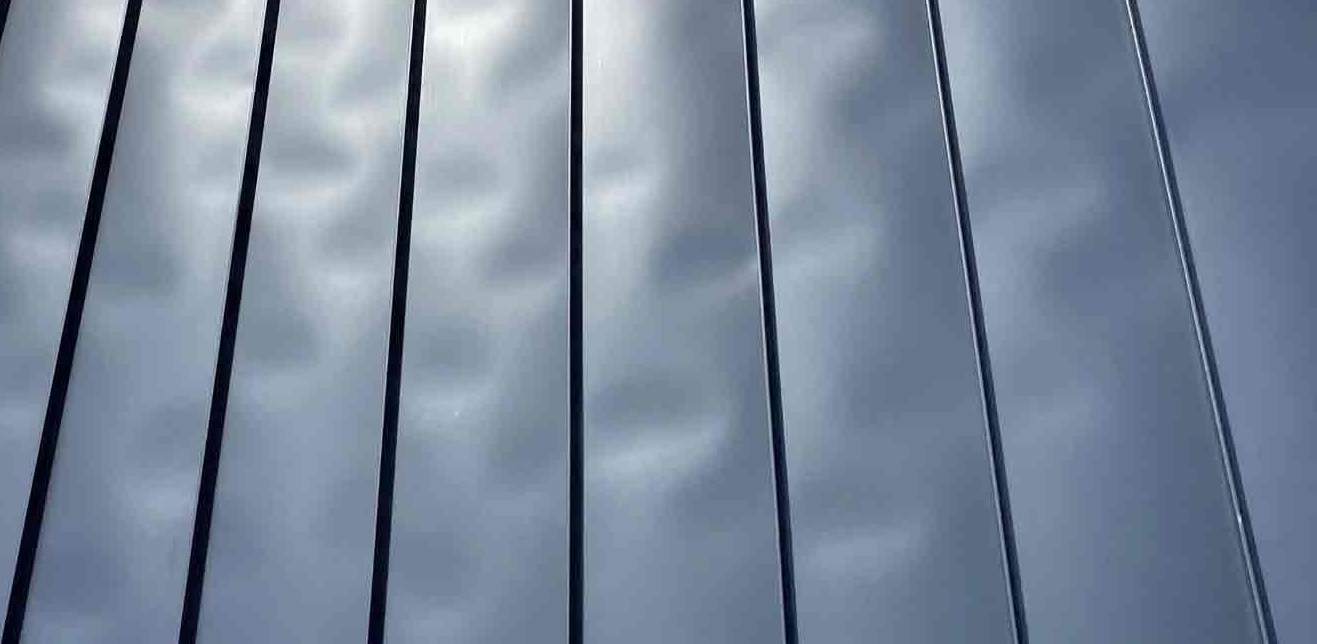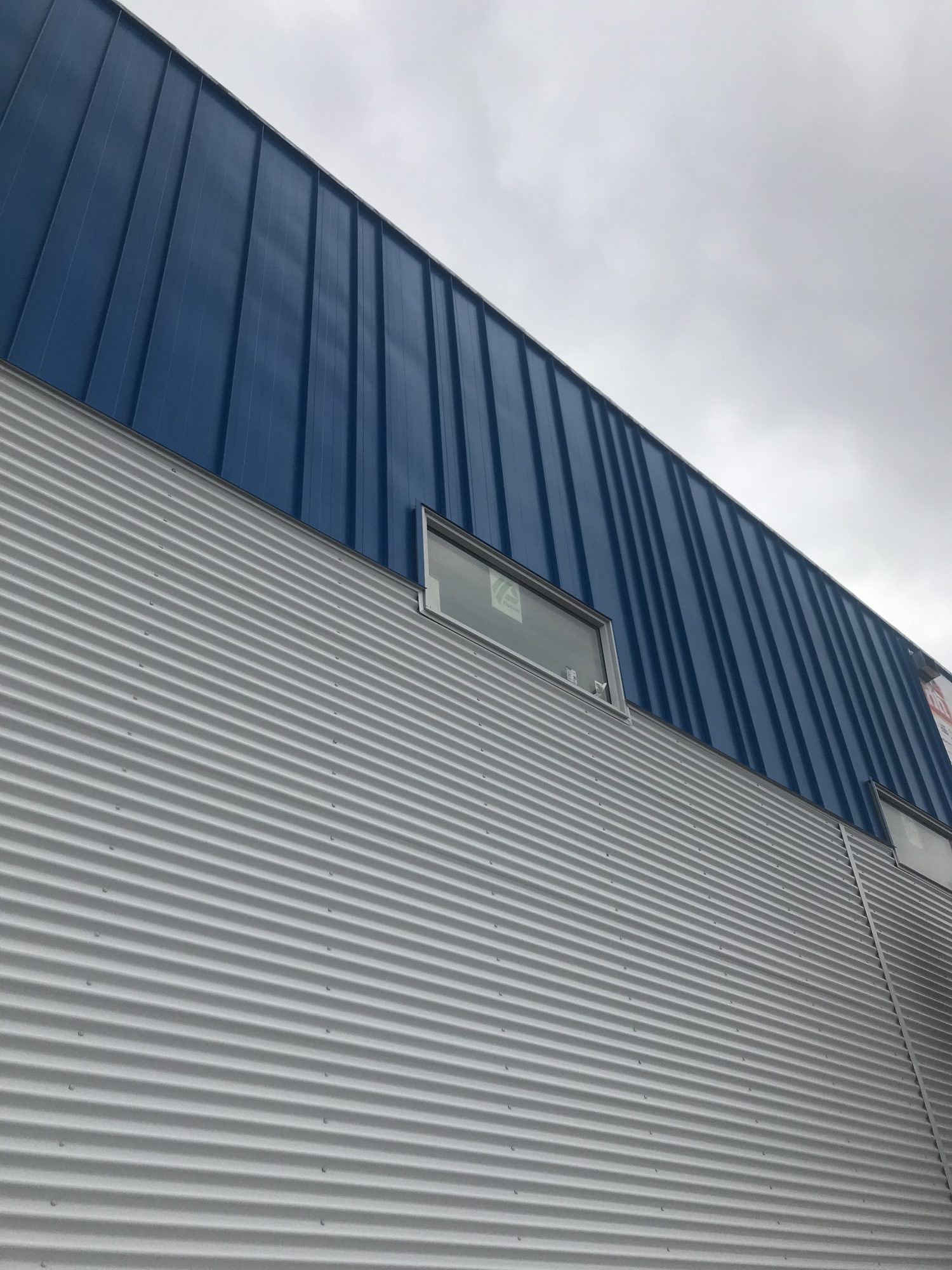Oil Canning Sheet Metal
Oil Canning Sheet Metal - Web oil canning is a visual phenomenon that can occur with standing seam metal roof and wall panel systems. Metal construction news asked five. Web oil canning in metal is an observed waviness or buckling across the flat areas of sheet metal panels that does not normally affect the roof's structural integrity. Discover why oil canning occurs, what to look for during installation, and how to. Web quick facts on oil canning. Web oil canning is the visible waviness in the flat areas of a metal roof or wall panel or architectural metal flashing. Oil canning is a moderate deformation or buckling of sheet material, particularly common with flat sheet metal surfaces. It is characterized as a moderate deformation or buckling of the sheet material,. It is seen as waviness in the flat. It is a moderate deformation that is cosmetic and not grounds for panel rejection.
Web oil canning is a visual phenomenon that can occur with standing seam metal roof and wall panel systems. Web oil canning is the visible waviness in the flat areas of a metal roof or wall panel or architectural metal flashing. Web quick facts on oil canning. Discover why oil canning occurs, what to look for during installation, and how to. It is characterized as a moderate deformation or buckling of the sheet material,. Oil canning is a moderate deformation or buckling of sheet material, particularly common with flat sheet metal surfaces. Metal construction news asked five. It is seen as waviness in the flat. It is a moderate deformation that is cosmetic and not grounds for panel rejection. Web oil canning in metal is an observed waviness or buckling across the flat areas of sheet metal panels that does not normally affect the roof's structural integrity.
Discover why oil canning occurs, what to look for during installation, and how to. Web oil canning is the visible waviness in the flat areas of a metal roof or wall panel or architectural metal flashing. Web oil canning is a visual phenomenon that can occur with standing seam metal roof and wall panel systems. Web quick facts on oil canning. It is a moderate deformation that is cosmetic and not grounds for panel rejection. Web oil canning in metal is an observed waviness or buckling across the flat areas of sheet metal panels that does not normally affect the roof's structural integrity. Oil canning is a moderate deformation or buckling of sheet material, particularly common with flat sheet metal surfaces. It is seen as waviness in the flat. Metal construction news asked five. It is characterized as a moderate deformation or buckling of the sheet material,.
Oil Canning What's the deal? Metal Cladding Systems
It is characterized as a moderate deformation or buckling of the sheet material,. Metal construction news asked five. Web quick facts on oil canning. Discover why oil canning occurs, what to look for during installation, and how to. It is seen as waviness in the flat.
Oil Canning in Metal Roof and Wall Systems Metal Roofing Magazine
Web oil canning is the visible waviness in the flat areas of a metal roof or wall panel or architectural metal flashing. Web quick facts on oil canning. It is characterized as a moderate deformation or buckling of the sheet material,. Web oil canning is a visual phenomenon that can occur with standing seam metal roof and wall panel systems..
What Is Oil Canning? Definition, Causes, & How to Minimize it (2022)
It is a moderate deformation that is cosmetic and not grounds for panel rejection. Web oil canning in metal is an observed waviness or buckling across the flat areas of sheet metal panels that does not normally affect the roof's structural integrity. Discover why oil canning occurs, what to look for during installation, and how to. It is seen as.
Oil Canning What is it and How can I Prevent it? Forma Steel
Discover why oil canning occurs, what to look for during installation, and how to. Web oil canning is the visible waviness in the flat areas of a metal roof or wall panel or architectural metal flashing. Oil canning is a moderate deformation or buckling of sheet material, particularly common with flat sheet metal surfaces. It is a moderate deformation that.
Flat lock rectangular zinc panel.Note that by using a heavier gauge
Web oil canning is the visible waviness in the flat areas of a metal roof or wall panel or architectural metal flashing. Web oil canning is a visual phenomenon that can occur with standing seam metal roof and wall panel systems. Discover why oil canning occurs, what to look for during installation, and how to. It is seen as waviness.
What Is Oil Canning? Definition, Causes, & How to Minimize it
Discover why oil canning occurs, what to look for during installation, and how to. Metal construction news asked five. Web oil canning is the visible waviness in the flat areas of a metal roof or wall panel or architectural metal flashing. It is characterized as a moderate deformation or buckling of the sheet material,. It is seen as waviness in.
Stop Colorbond Oil Canning My Cladders
Web oil canning is a visual phenomenon that can occur with standing seam metal roof and wall panel systems. It is characterized as a moderate deformation or buckling of the sheet material,. It is a moderate deformation that is cosmetic and not grounds for panel rejection. Web oil canning is the visible waviness in the flat areas of a metal.
Robertson
Web oil canning is the visible waviness in the flat areas of a metal roof or wall panel or architectural metal flashing. It is a moderate deformation that is cosmetic and not grounds for panel rejection. It is seen as waviness in the flat. Metal construction news asked five. Web quick facts on oil canning.
Oil Canning Controls Metal Construction News
Metal construction news asked five. Discover why oil canning occurs, what to look for during installation, and how to. It is a moderate deformation that is cosmetic and not grounds for panel rejection. Web oil canning in metal is an observed waviness or buckling across the flat areas of sheet metal panels that does not normally affect the roof's structural.
Oil Canning in Metal Roofing JaMar Roofing & Sheet Metal
It is seen as waviness in the flat. Web quick facts on oil canning. It is a moderate deformation that is cosmetic and not grounds for panel rejection. Web oil canning in metal is an observed waviness or buckling across the flat areas of sheet metal panels that does not normally affect the roof's structural integrity. It is characterized as.
Web Quick Facts On Oil Canning.
Metal construction news asked five. Web oil canning is a visual phenomenon that can occur with standing seam metal roof and wall panel systems. Oil canning is a moderate deformation or buckling of sheet material, particularly common with flat sheet metal surfaces. Discover why oil canning occurs, what to look for during installation, and how to.
Web Oil Canning Is The Visible Waviness In The Flat Areas Of A Metal Roof Or Wall Panel Or Architectural Metal Flashing.
Web oil canning in metal is an observed waviness or buckling across the flat areas of sheet metal panels that does not normally affect the roof's structural integrity. It is seen as waviness in the flat. It is characterized as a moderate deformation or buckling of the sheet material,. It is a moderate deformation that is cosmetic and not grounds for panel rejection.









